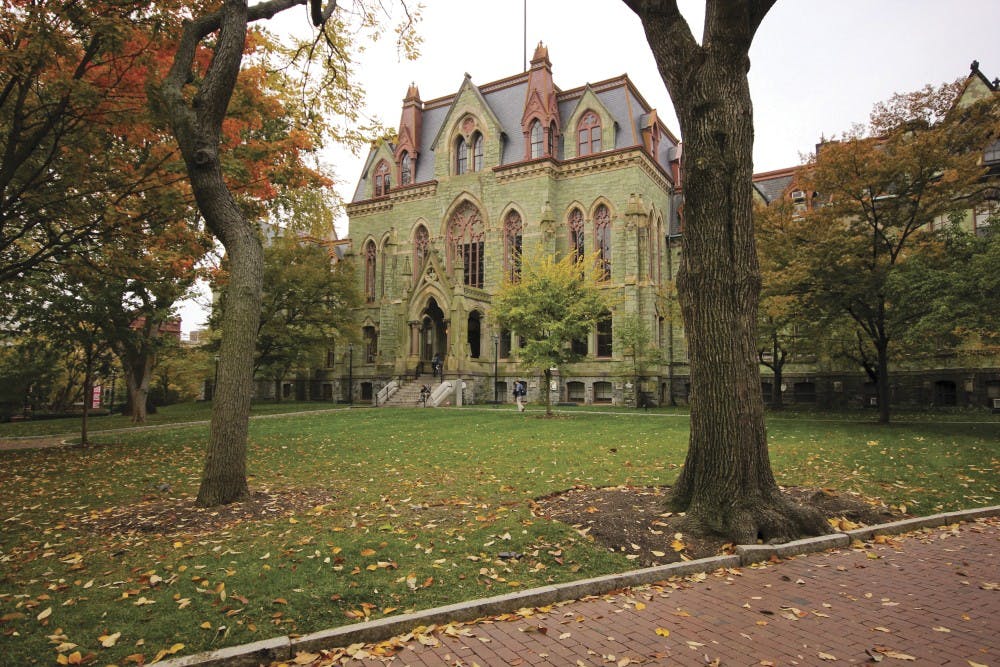
PennIntegrates Knowledge professors Dorothy Roberts and Sarah Tishkoff argue in their new paper that scientific research uses an antiquated view of race as a genetically homogenous category. They instead advocate that ancestry be used to categorize individuals.
Does your race determine your genes? Two Penn professors don’t think so.
Penn Integrates Knowledge professors Dorothy Roberts and Sarah Tishkoff have recently published a paper in the journal Science calling for the end of using race as a biological category in genetic research.
Roberts and Tishkoff emphasized that racial categories in genetic research have long been a nebulous and problematic concept. They explained that since the advancement of human genomic sequencing in the early 2000s, researchers and scientists have called for an end to the use of race as a genetic variable in research.
“In the paper, we’re concerned about the unscientific use of race as if it were a biological category and the confusion that it creates, and we’re calling for a better way of investigating human genetic variation and commonality,” Roberts said.
For one thing, the definition of the word race is unclear among scientists and even the general public. Researchers may not be thinking of the same definitions when they apply them. For example, two out of many entries on the online Merriam-Webster dictionary define race as “any one of the groups that human beings can be divided into based on shared distinctive physical traits” and as “a group of individuals who share a common culture or history.”
From a scientific perspective, the term race doesn’t accurately capture the true diversity of human genetic variation — something that isn’t broken down into discrete groups. Because of the intermixing of different groups of people over time, the lines between what makes someone a member of one race is blurred.
“As a good example, Hispanics. There is no such thing as a genetically homogeneous Hispanic race or group because people who may self-identify as Hispanic typically have a whole range of ancestry that could be European ancestry, African ancestry, Native American ancestry and maybe even other ancestry,” Tishkoff said. “Plus, sometimes people’s self-identified ancestry may not match their genetically-inferred ancestry.”
In a previous study, Roberts and Tishkoff conducted, they found that there were some people who self-identified as African who had almost no African ancestry and vice versa, demonstrating the issue of self-identification by race in genetic research. Tishkoff mentioned that, in Africa, there is almost as much genetic variation as one would see on a global level, making it impossible for a genetically homogenous “African race” to exist.
This false belief in strict genetic lines between races can have negative effects. Roberts and Tishkoff’s paper mentioned that certain types of blood disorders, like sickle-cell anemia or thalassemia, can be misdiagnosed because of the identification of sickle-cell as a “black” disease and thalassemia as a “Mediterranean” disease. In addition, cystic fibrosis is under-diagnosed in populations of African ancestry, because it is thought of as a “white” disease.
The negative effects are not just limited to the health sector, however. The idea of race as a distinct genetic category has roots in racism, eugenics and Social Darwinism.
“Part of the problem is that there’s been this intertwining of biological and cultural definitions of race and it’s almost impossible to separate those,” Tishkoff said. She stated that, in early history, parataxonomists would study differences in physical features among different races.
“Sometimes these so-called scientific findings were used to justify abusive and hierarchical classifications and ... ultimately lead up to things like the Nazi movement and the Holocaust,” Tishkoff said.
Similar to how the Nazi movement used physical features to characterize genetic superiority, the same mentality was used to justify slavery and colonialism. Based on race, people were referred to as being part of a genetic group that made them inferior — even though that idea of genetic grouping was unfounded.
“Even if today scientists do no have that purpose, using that same way of organizing human beings into supposedly biologically distinct races inevitably carries that history with it,” Roberts said. “Even if they don’t intend for that to happen, it is interpreted that way and often is used by people who are explicitly racist to justify their claims about inferiority and superiority of different groups of human beings.”
The duo called to attention the diversity of groups in the United States today. For example, blacks are considered anyone with an African ancestry. In that case, black people can have ancestry from all over the world — a wide genetic variation — and still be classified as a genetically homogenous group in research.
Roberts and Tishkoff said that for genetic research, scientists would be better served using concepts like ancestry or ethnicity. They stressed that their call to eliminate race as a genetic category doesn’t mean that genetic diversity isn’t important in research, but rather that other grouping techniques might be more effective.
In addition, race could be an important aspect in research when used to study social factors like socioeconomic status and its influence on health disparities or structural inequalities based on race. Roberts and Tishkoff said that their paper was a call for scientists to realize that they need to be more careful and clear in how they are using race in research.
“There can be scientific studies that use race as a social category. Social scientists use race as a social category all the time,” Roberts said. “The problem comes when scientists are using social categories as if they were genetic categories, and that’s why we’re saying that ancestry would be a better category if you’re interested in the relationship between genes and history or population structure and evolution.”
The Daily Pennsylvanian is an independent, student-run newspaper. Please consider making a donation to support the coverage that shapes the University. Your generosity ensures a future of strong journalism at Penn.
DonatePlease note All comments are eligible for publication in The Daily Pennsylvanian.





